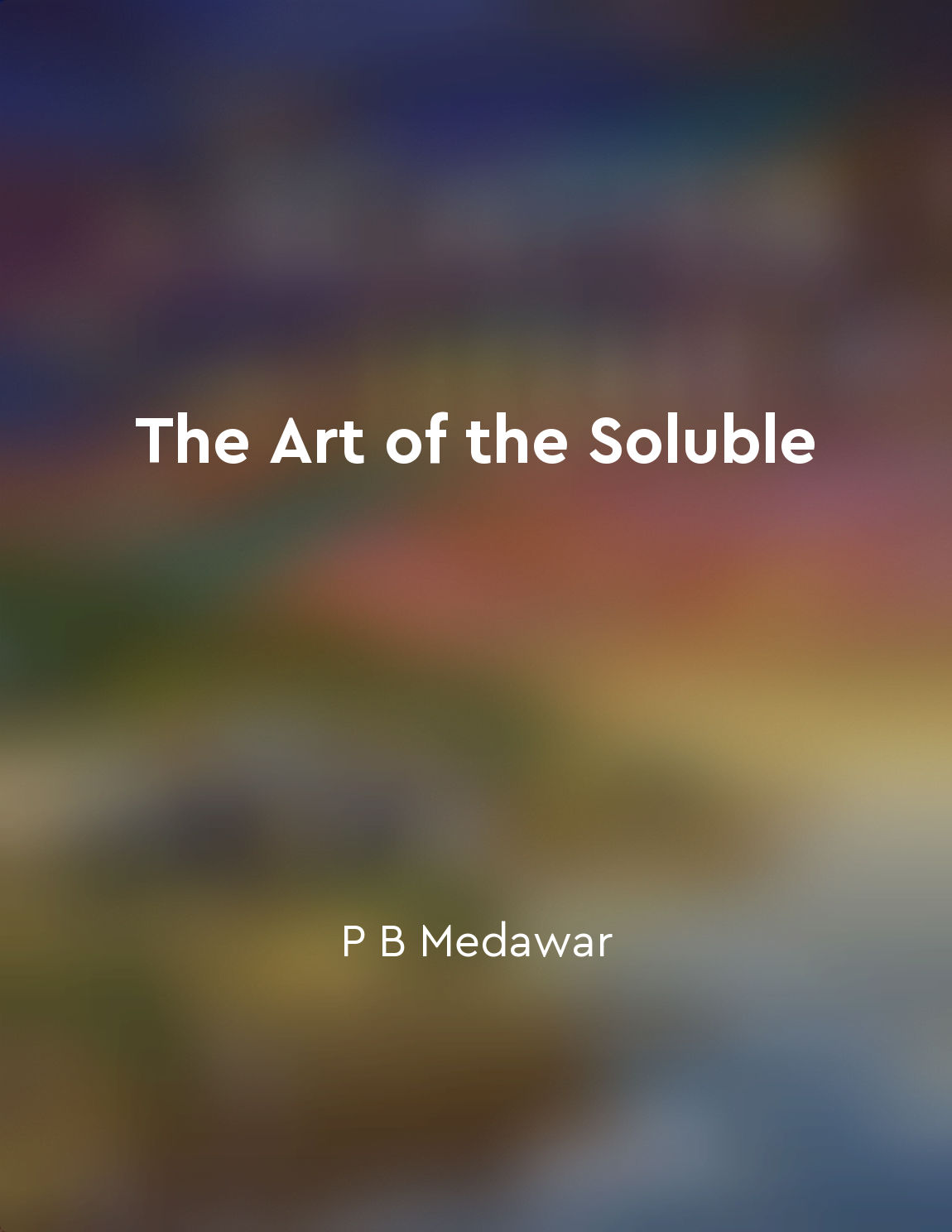Legacy of past paradigms from "summary" of The Structure of Scientific Revolutions by Thomas S. Kuhn
The concept of the legacy of past paradigms is crucial to understanding the development of scientific revolutions. When a new paradigm emerges, it does not simply replace the old one entirely. Instead, elements of the old paradigm persist and influence the new one. This legacy can take many forms, including theories, methods, and even ways of thinking about the world. The legacy of past paradigms can be both a strength and a limitation. On the one hand, it provides a foundation for the new paradigm to build upon. It allows scientists to draw upon the work of their predecessors and avoid starting from scratch. This continuity can help to maintain a sense of order and progress in scientific ...Similar Posts
Chemistry is a blend of creativity and precision
Chemistry is a field that requires a delicate balance between creativity and precision. On one hand, chemists must be imaginati...
Cultural narratives shape human belief systems
Human belief systems are not static entities but are constantly evolving constructs that are shaped by the cultural narratives ...

A scientist must be willing to accept uncertainty and ambiguity
The pursuit of scientific knowledge is a noble endeavor fraught with challenges and obstacles. One of the fundamental principle...
Chemistry is essential for understanding the world around us
Chemistry is the key to unlocking the mysteries of the world around us. From the air we breathe to the food we eat, chemistry p...
Trust and credibility were key factors in shaping scientific knowledge
The establishment of trust and credibility played a critical role in the formation and dissemination of scientific knowledge du...
Paradigms guide scientific research
The concept that paradigms guide scientific research is a fundamental aspect of the scientific process, as discussed in 'The St...
Revolutions transform scientific consensus
Scientific revolutions have a profound impact on the consensus within the scientific community. These revolutions bring about a...
